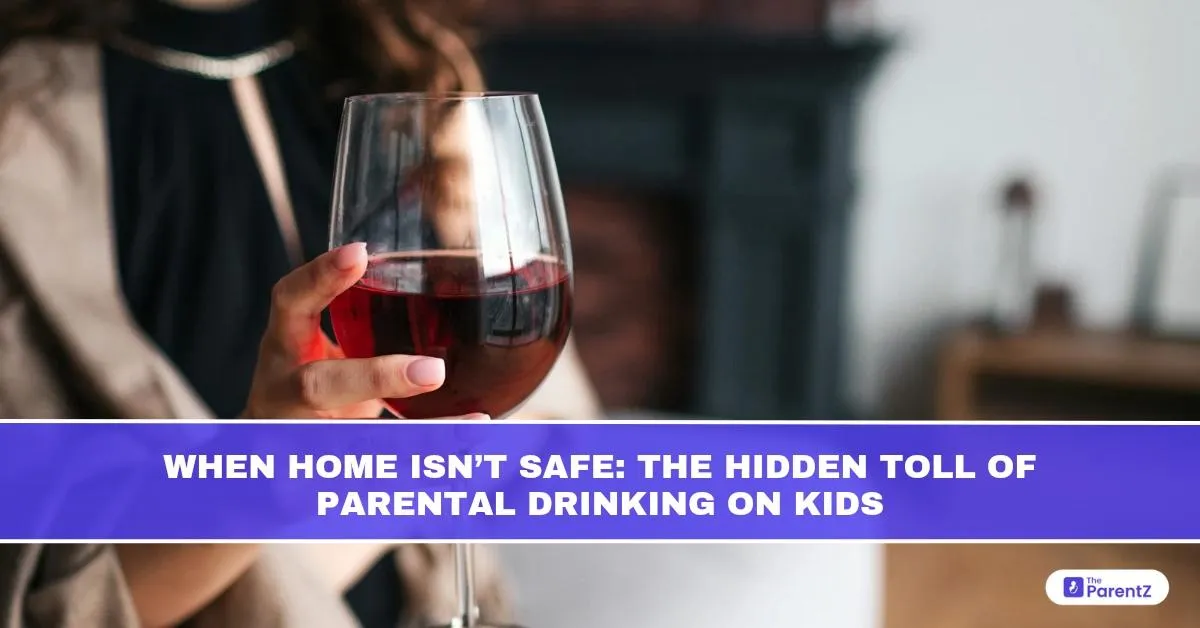Home is supposed to be a child’s safest space, a cocoon of warmth, trust, and predictability. But what happens when the very people meant to protect them start acting differently after a drink or two? For many children, growing up in a home where alcohol is regularly consumed by a parent brings silent confusion, fear, and instability. Even if the drinking is not excessive or abusive, its emotional footprint can be lasting.
1. What Children See, They Feel Deeply
Children, especially between the ages of 0 to 10, are extremely sensitive to changes in their environment. When a parent’s behaviour shifts after drinking, whether they become louder, moodier, more absent-minded, or emotionally unavailable, kids notice.
Even if the parent feels “in control,” the shift in tone or attention can make a child anxious. They may not understand what’s happening, but will often internalize it, blaming themselves or worrying that something is wrong at home.
A 2021 review in the Journal of Studies on Alcohol and Drugs found that children exposed to regular parental alcohol consumption, not just alcoholism, had higher levels of emotional insecurity and stress-related symptoms.
2. Emotional Inconsistency and Unspoken Tension
When parents drink, especially during evenings or weekends at home, children may experience unpredictable emotional climates, warmth, and laughter on one day, followed by irritability or silence the next. This inconsistency chips away at their sense of emotional safety.
Over time, children may “walk on eggshells,” unsure of how to behave or what version of their parent they’ll encounter. This subtle stress can lead to anxiety, sleep disturbances, and even poor school performance.
Anonymous accounts from adult children of drinkers often include phrases like:
“I never knew if it would be a calm night or a shouting match.”
“I hated dinner time, the mood changed with the number of bottles.”
3. The Risk of Normalising Alcohol
Kids learn by watching. If they frequently see alcohol being poured to celebrate, de-stress, or cope with daily life, they start to internalize it as a “normal” response to emotions.
This can lay the foundation for risky behaviours in adolescence or adulthood, not necessarily addiction, but an unhealthy emotional reliance on substances to manage feelings.
Studies from the Indian Journal of Psychiatry show that teens from homes with regular, visible drinking patterns are more likely to experiment with alcohol earlier than peers, especially if it is not discussed openly or responsibly.
4. Subtle but Serious Impact on Bonding
Even occasional drinking can create a disconnect in the parent-child bond. A parent distracted by alcohol may be physically present but emotionally distant, missing cues, cutting short stories, or reacting sharply to small things.
Over time, children may stop sharing, stop reaching out, or feel like their feelings aren’t safe to express. This emotional withdrawal can affect how they trust and relate to others in future relationships.
5. What Happens in Childhood Doesn’t Stay in Childhood
The effects of growing up around regular alcohol use are not always immediate. Some children develop coping mechanisms, becoming overly responsible, perfectionistic, or withdrawn. These patterns often carry into adulthood, affecting their self-esteem, mental health, and even their own parenting.
Research from the World Health Organization highlights that children who grow up in homes where alcohol is regularly consumed (even without physical abuse) have a higher risk of developing anxiety disorders, depressive episodes, and interpersonal difficulties in later life.
6. How to Create a Safer Emotional Space Even if You Drink Occasionally
This isn’t about guilt, it’s about awareness. Many parents aren’t alcoholics or even heavy drinkers. But simply reflecting on how drinking looks and feels from a child’s point of view can help create a safer, healthier home.
Here are some ways to reduce emotional harm:
- Be consistent: If you do drink, avoid making it a daily pattern and never let it affect your parenting interactions.
- Stay present: Don’t use alcohol as a way to unwind in isolation. Engage with your children first, read to them, eat with them, check in.
- Open up: Talk to older children about alcohol in a responsible way. Normalize feelings, not substances.
- Model stress relief differently: Let your child see your journal, walk, play music, or talk about your day instead of reaching for a bottle.
Conclusion
Alcohol is legal, social, and part of many homes, but for a child, its emotional shadow can feel larger than we realize. Even without abuse or addiction, frequent drinking by parents can unsettle a child’s sense of stability and belonging. Creating a safe home doesn’t mean never drinking; it means staying emotionally present, consistent, and aware of the messages our actions send. Because children remember not just what you said, but how they felt growing up with you.





Be the first one to comment on this story.